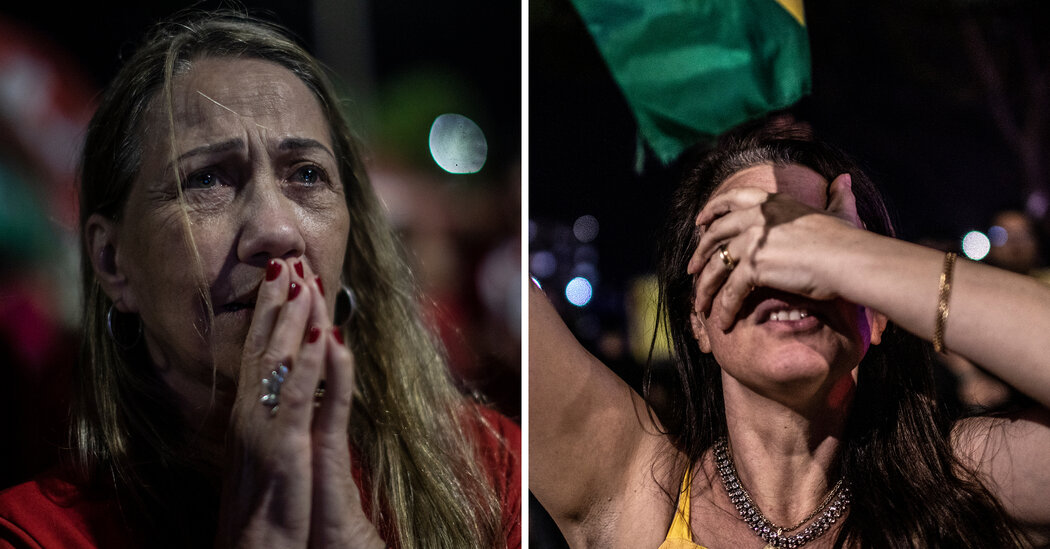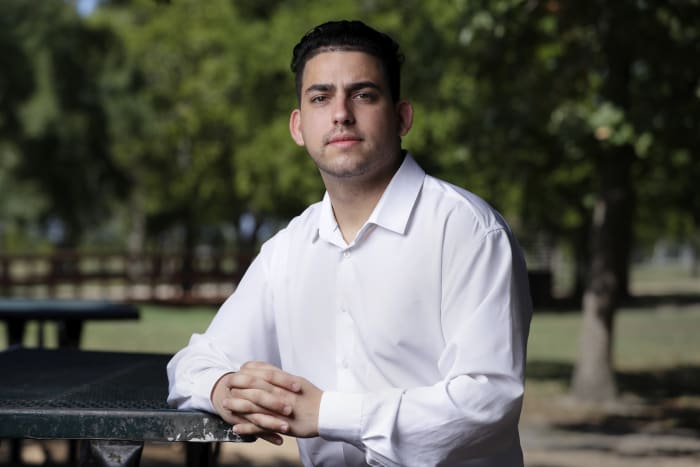This post may refer to COVID-19
To access official information about the coronavirus, access CDC - Centers for Disease Control and Prevention.

www.nytimes.com
Bolsonaro and His Leftist Challenger, Lula, Are Headed for a Runoff, Officials Say
The right-wing president had polled poorly for the last year, and risked losing in the first round. But hours after voting closed, the contest was headed to a runoff.
Politics
RIO DE JANEIRO — For months, pollsters and analysts had said that President Jair Bolsonaro was doomed. He faced a wide and unwavering deficit in Brazil’s high-stakes presidential race, and in recent weeks, the polls suggested he could even lose in the first round, ending his presidency after just one term.
Instead, it was Mr. Bolsonaro who was celebrating. While the challenger, Luiz Inácio Lula da Silva, a former leftist president, finished the night ahead, Mr. Bolsonaro far outperformed forecasts and sent the race to a runoff.
Mr. da Silva received 48.4 percent of the votes on Sunday, versus 43.23 percent for Mr. Bolsonaro, with 99.87 percent of the ballots counted. Mr. da Silva needed to exceed 50 percent to be elected president in this first round.
They will now face off on Oct. 30 in what is widely regarded as the most important vote in decades for Latin America’s largest nation.
That is in part because of the starkly different visions the two men set forth for this country of 217 million people, and because Brazil faces a host of challenges, including environmental threats, rising hunger, a sputtering economy and a deeply polarized population.
Mr. Bolsonaro had claimed for months that the polls were underestimating his support, using his enormous rallies as evidence. Yet every trusted poll showed him behind. On Sunday, it was clear that he was right. With most of the ballots counted, he performed better in all of Brazil’s 27 states than what Ipec, one of Brazil’s biggest pollsters, had predicted a day before the election.
Mr. Bolsonaro told reporters late Sunday that he “overcame the lies” in the polls and that he felt he now had an advantage in the second round. Even with the positive results, he also suggested there could have been fraud, saying he would wait for the military to check the results.
“There’s always the possibility of something abnormal happening in a fully computerized system,” he said.
Pollsters appeared to misjudge the strength of conservative candidates across the country. Governors and lawmakers supported by Mr. Bolsonaro also outperformed polls, winning many of their races on Sunday.
Cláudio Castro, the governor of Rio de Janeiro state, was re-elected in a landslide, with 58 percent of votes, 10 points above of what Ipec predicted. At least seven former ministers of Mr. Bolsonaro were also elected to Congress, including his former environment minister, who oversaw skyrocketing deforestation in the Amazon, and his former health minister, who was widely criticized for Brazil’s delay in buying vaccines during the pandemic.
Still, over the next four weeks, Mr. Bolsonaro will have to make up ground on Mr. da Silva, who was still the leading vote-getter on Sunday. Mr. Bolsonaro is trying to avoid becoming the first incumbent to lose his re-election bid since the start of Brazil’s modern democracy in 1988.
At the same time, Mr. da Silva is trying to complete a stunning political revival that years ago had seemed unthinkable.
While he ended the night as the front-runner, his speech to supporters took on a somber tone. But he said he welcomed the chance to now debate Mr. Bolsonaro one-on-one.
“We can compare the Brazil he built and the Brazil we built,” he said. “Tomorrow the campaign starts.”
A former metalworker and union leader with a fifth-grade education, Mr. da Silva led Brazil during its boom in the first decade of the century. He was then convicted on corruption charges after he left office and spent 580 days in prison. Last year, the Supreme Court threw out those charges, ruling the judge in his cases was biased, and voters have since rallied behind the man known simply as “Lula.”
The two men are the country’s most prominent — and polarizing — politicians. The left in Brazil views Mr. Bolsonaro as a dangerous threat to the nation’s democracy and its standing on the world stage, while the country’s conservatives see Mr. da Silva as an ex-convict who was a central part of a vast corruption scheme that helped rot Brazil’s institutions. Many voters have made clear that they are lining up against one candidate more than in support of the other.
























































